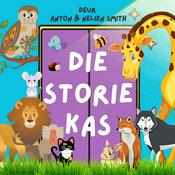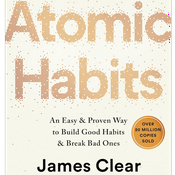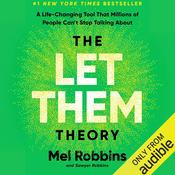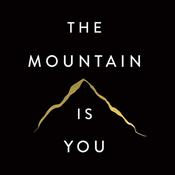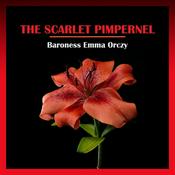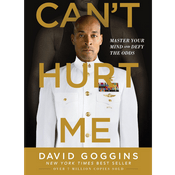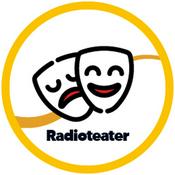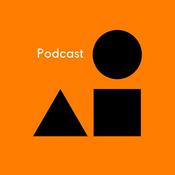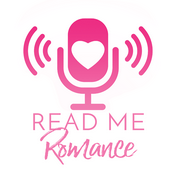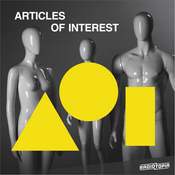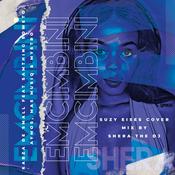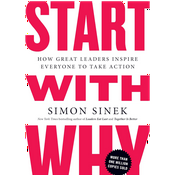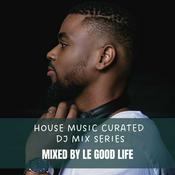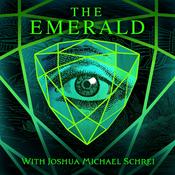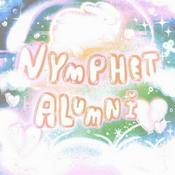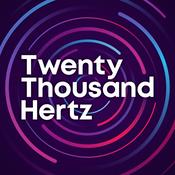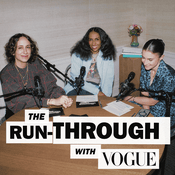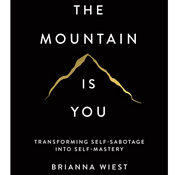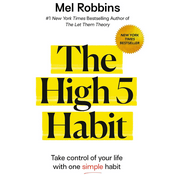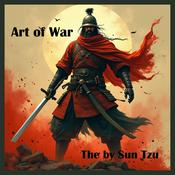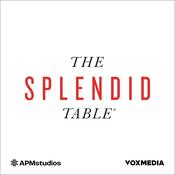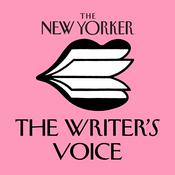116 episodes
- Send us a text! We'd love to hear your thoughts on the show.
If you’ve ever wondered what might happen if the “perfect” PTA mom had a secret life… this episode is for you.
In today’s conversation on The Resilient Writers Radio Show, I’m joined by women’s suspense author Kendra Pecci, and we’re talking about her debut novel, Focus on Deception—a deliciously fun, high-stakes story set in a world of soccer games, fundraisers, and wine moms… with a twist.
Kendra introduces us to Stella Meyers, a photographer who blends right into her ritzy Connecticut suburb by day—capturing weddings, parties, and PTA events—while secretly robbing people blind at night.
Stella lives for the thrill, but when an exhilarating new connection starts to make a steady paycheck (and a more “normal” life) look appealing, everything changes. A ruthless blackmailer uncovers Stella’s identity and threatens her daughter, and suddenly all bets are off.
Kendra describes the vibe perfectly: Ocean’s 8 meets Big Little Lies with Gilmore Girls energy—and honestly? Yes. Please.
We also dig into the long road it took Kendra to bring this book to life. The seed of the story came years ago, when Kendra was living in Anchorage, Alaska and spotted the president of the PTA—seemingly flawless, “the whole package.” Kendra wondered, What if this is all a ruse? And just like that, Stella was born.
But here’s where it gets really interesting: Kendra originally wrote Stella’s story as women’s fiction. She queried it back in 2011 and kept hearing the same feedback: “You’ve got a thriller on your hands—you need to raise the stakes.” Kendra resisted that for a long time (a decade, in fact), because she wanted to tell a story about a mom taking risks without having to “wreck” the character.
Eventually, she made the difficult (and powerful) craft decision to shift the book into women’s suspense—while still honoring the relationships, inner life, and emotional texture that make Stella feel so real.
Kendra also shares what it was like to self-publish Focus on Deception in 2025—describing it as riding a roller coaster while building the roller coaster (and learning how to build it at the same time).
We talk about the importance of deadlines, editing support, and figuring out what kind of writer you are—pantser, plotter, or (as she learned from Lewis Jorstad) a “puzzler” who uses intuitive outlining to create direction without crushing creativity.
And underneath all of it is a message writers need: finishing a book is often 90% mental. There really is a path for everybody—you just have to find the one that fits your brain, your life, and your season. - Send us a text! We'd love to hear your thoughts on the show.
If you’ve ever had a moment where something about your life suddenly made sense—and at the same time opened up a whole new set of questions—this conversation is for you.
In this episode of The Resilient Writers Radio Show, I’m joined by writer and memoirist Julie Green, author of Motherness: A Memoir of Generational Autism, Parenthood and Radical Acceptance. Julie shares the long, layered journey that led her to this book, beginning with her son’s autism diagnosis and eventually leading to her own, years later, in midlife.
Julie talks about what it’s like to be diagnosed later in life—and how that diagnosis sends you back through your memories: childhood, adolescence, early adulthood. It can be clarifying, emotional, and surprisingly tender, as long-held beliefs about who you are (and why certain things felt so hard) begin to shift.
We also talk craft, because Motherness didn’t come together by accident. Julie shares how she found what she calls the “container” for the story: a structure that allowed her to weave together parenting scenes, personal history, and research on autism without losing the heart of the memoir.
Each chapter explores a different aspect of the autistic experience—sensory differences, giftedness, eating and food, gender, special interests—layering her son’s experiences alongside her own, and showing both overlap and difference across generations.
A central theme of this conversation is radical acceptance. Julie reflects on how autism is often portrayed in extremes—either as tragedy or superpower—and why neither of those stories feels true to lived experience. Autism, she says, simply is. Some days are genuinely hard, especially in a world that isn’t built for neurodivergent people.
And there can also be humor, joy, and deep connection. Julie was intentional about holding the full truth of that on the page.
We also dig into how she integrates research in a way that supports the reader without overwhelming the story—moving from scene to context and back again—so the book stays grounded in lived experience.
Julie shares what her publishing journey looked like with ECW Press, including the courage it took to revise and resubmit after an initial “almost,” and what she’s working on now.
This is a thoughtful conversation about writing from lived experience, trusting stories that take time, and learning—again and again—to meet ourselves with more compassion. - Send us a text! We'd love to hear your thoughts on the show.
This week on The Resilient Writers Radio Show, Rhonda is joined by Robert Boyle and Joe Cimenti, longtime friends who co-authored Thai Hut Tuesdays—a collection of short, heartfelt stories that’s meant to be both comforting and genuinely funny.
They describe the book as “Chicken Soup for the Soul meets Nate Bargatze”: emotional, relatable, and light enough to make you laugh at the things that once felt overwhelming.
The idea for the book began years ago—around 2006—after Bob and Joe spent decades doing leadership and sales training together. Over and over, they heard the same feedback: people might not remember the bullet points… but they always remembered the stories. That insight became the seed for the book.
What started as a leadership-focused project (and even took on a spiritual angle at one point) eventually evolved into what it needed to be all along: real stories from real life—parenting, marriage, work, mistakes, growth, and the everyday moments that shape us.
The title comes from a weekly ritual: meeting at a restaurant on Tuesdays, with a mix of people across ages, swapping life experiences and wisdom in community. That spirit of connection runs through the whole conversation. Bob (a psychologist in private practice) and Joe (a corporate executive) share how life’s responsibilities didn’t make writing easy—especially with four children each—but they kept returning to the project year after year, recommitting whenever life allowed.
Rhonda also asks about the practical side of co-writing: how did they actually do it? Bob and Joe share that they split the stories (each wrote half), and they also made space for intentional writing retreats—sometimes literally setting up shop in the common area of a Courtyard Marriott, laptops out, writing, talking through drafts, and cheering each other on.
Their collaboration worked because their styles are different—but compatible—and because they built the book around a consistent element: the lesson learned at the end of each story.
A big turning point was getting support from book coach Meg Calvin, who helped the project finally materialize. Bob and Joe talk candidly about how powerful it was to have someone in their corner who could guide them, simplify the publishing process, and help them believe, “Yes—you can do this.”
By the end of the episode, what lingers is the heart of Thai Hut Tuesdays: these are bite-sized, 3–5 minute stories you can pick up when you’re spinning, stressed, or doubting yourself—and come away remembering that so much of what we go through is shared human territory. - Send us a text! We'd love to hear your thoughts on the show.
What happens to creative writing—and to us as writers—when artificial intelligence becomes part of the conversation?
In this solo episode of The Resilient Writers Radio Show, I share why I'm introducing video to the podcast in 2026, and then dive into a thoughtful, deeply human conversation about AI and creative writing.
This is not a how-to episode on using AI to write your book. Instead, it’s an invitation to slow down, think critically, and decide—intentionally—how (or if) AI belongs in your creative process.
I begin by acknowledging that many writers are curious about AI, and that some are already using it to help finish their books. I also share a resource, from my friend Ana Del Valle of The Novelists Studio, for those who feel strongly that AI is right for them, pointing to tools designed with ethical and copyright considerations in mind.
But I want to be very clear: when it comes to my own creative work, I choose not to use AI—and I explain why in this episode.
At the heart of my perspective is this belief: in an age of rapidly advancing technology, human creativity matters more than ever. We come to books to feel less alone, to understand what it means to be human, and to experience the world through another person’s voice.
👉 No large language model can replicate lived experience, imagination, or the emotional truth that comes from a real human mind wrestling with language.
I also share research suggesting that reliance on AI tools like ChatGPT may erode critical thinking skills over time. Writing is a “use it or lose it” practice. Brainstorming, problem-solving, and shaping language are muscles—and if we stop using them, they weaken. That’s why I still reach for my favorite brainstorming technology: a notebook and a pen.
Beyond creativity and cognition, I also want to raise ethical and environmental concerns. From hallucinated information and unreliable outputs to troubling experiments showing unethical behavior by AI systems under pressure, I just want writers to think carefully about what we’re participating in.
I'm also very much concerned about the environmental toll of large-scale AI infrastructure—energy use, water consumption, and resource extraction—especially in a world already facing climate crisis.
Finally, I circle back to what matters most: your voice. Your way of seeing the world. Your metaphors, rhythms, and instincts. Whether you write fiction, nonfiction, or poetry, your work is needed—not despite the rise of AI, but because of it.
If you’ve ever wondered, “If AI can write books, what’s the point of me writing mine?” this episode is your answer. The point is you. And the world needs your very human stories now more than ever. - Send us a text! We'd love to hear your thoughts on the show.
If you’ve ever wondered whether that wild, complicated story in your family could become a novel, this episode is for you.
I’m joined by award-winning author Barbara Sibbald, whose latest book, Almost English, began as a family legend, became a genealogy project, then tried to be creative nonfiction—before finally settling into the form it needed all along: a historical novel.
Barbara’s great-grandparents lived in Quetta, on the Northwest Frontier of British India (now Pakistan) between 1885 and 1912. Growing up, she’d heard half-true tales about an Indian princess and a pet elephant, but it wasn’t until her mother spent nearly two decades compiling a detailed family genealogy—and shared boxes of letters and photographs—that the real story came into focus.
In this conversation, Barbara walks us through how she turned that wealth of material into fiction, while still honouring the lives at the heart of it. We talk about:
How her mother’s meticulous genealogy and bundles of family letters sparked the idea for Almost English
Why the story first appeared to be creative nonfiction—and what made Barbara realize it actually had to be a novel
The moment she understood she needed access to her characters’ inner lives, thoughts, and conversations, and why that pushed her toward fiction
The central question that finally unlocked the book:
How could her great-grandfather, Stephen Turner, a quarter Indian man, ever be accepted into the racist power structure of the Raj?
How Barbara used that central question as a compass for cutting thousands of words and tightening the narrative
The research she did into the Raj, the Durand Line, household life, women’s work, and even period undergarments (!), to bring the world to life
Her use of real letters versus invented ones, and how both helped her build an emotionally resonant narrative
We also talk about the book’s unusual structure. In addition to the main historical storyline, Barbara includes short nonfiction pieces she calls “interstices”, where she reflects on her own search for belonging as the child of an itinerant military family—and how that parallels her great-grandparents’ experience.
That blending of historical fiction, biography, and autobiography made the book hard to categorize—and hard to sell. Barbara shares candidly about the seven drafts, nearly three years of querying, and 48 approaches to publishers before the book was finally acquired by Bayeux Arts in Canada, and then by Vishwakarma Publications in India.
If you’ve ever struggled to decide whether your story should be memoir, creative nonfiction, or a novel, you’ll find so much reassurance and practical insight in Barbara’s journey with Almost English.
More Arts podcasts
Trending Arts podcasts
About The Resilient Writers Radio Show
Welcome to the Resilient Writers Radio Show! This is the podcast for writers who want to create and sustain a writing life they love. It's for writers who love books, and everything that goes into the making of them. For writers who wanna learn and grow in their craft, and improve their writing skills. Writers who want to finish their books, and get them out into the world so their ideal readers can enjoy them, writers who wanna spend more time in that flow state, writers who want to connect with other writers to celebrate and be in community in this crazy roller coaster ride we call “the writing life.”
Podcast websiteListen to The Resilient Writers Radio Show, Die Storiekas and many other podcasts from around the world with the radio.net app
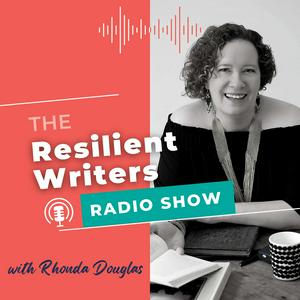
Get the free radio.net app
- Stations and podcasts to bookmark
- Stream via Wi-Fi or Bluetooth
- Supports Carplay & Android Auto
- Many other app features
Get the free radio.net app
- Stations and podcasts to bookmark
- Stream via Wi-Fi or Bluetooth
- Supports Carplay & Android Auto
- Many other app features


The Resilient Writers Radio Show
Scan code,
download the app,
start listening.
download the app,
start listening.

